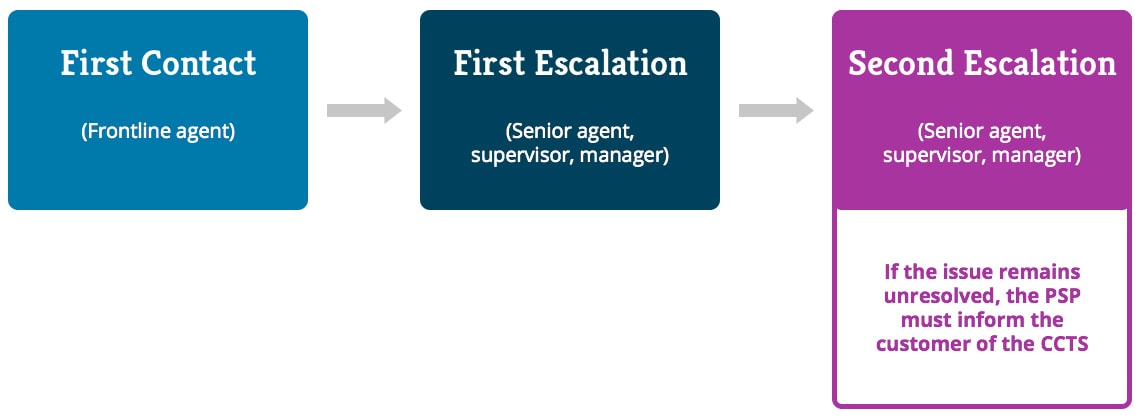This section identifies the main issues that were found during the review process.
Only 1 PSP was non-compliant for all sections of the PA Plan. Maple Call did not provide any response to the CCTS requests for documentation. As such, the PSP has been deemed non-compliant with all sections of the PA Plan. As this situation did not occur in 2019, Maple Call’s results raised the average of non-compliant items per PSP in 2020.
2 PSPs failed to respond to our requests. As part of the review process, the CCTS may request additional information from a PSP. When the PSP fails to respond to this request, it is deemed non-compliant for the affected section(s) of the PA Plan. In 2020, this was the case with 2 PSPs:
- Maple Call failed to respond to all requests for documentation from the CCTS, as explained above.
- Xplornet failed to respond to a request for additional information. As a result, they were deemed non-compliant for the sections related to invoices and white pages.
The most common issue affects customers who do not receive bills. With 5 non-compliant PSPs, section 2(f) is the main issue with PA Plan compliance in 2020. This sub-section lists notification requirements for customers who do not receive bills, and affects mostly pre-paid customers. Amongst the reasons for this non-compliance, the CCTS noted that PSPs did not mention that the text message informing their customers of the CCTS is free of charge, nor did they make it clear that it was coming from the service provider. Freedom Mobile also confirmed that due to an oversight, the required message was not sent to customers in 2020.
The second most common issue shows that some PSPs still need to update their internal process documents and invoices. The CCTS determined that the documents of several PSPs showed outdated information about the CCTS in 2020: 4 are noted as non-compliant due to the content of the CCTS message on their invoices, and 5 due to the CCTS information in their internal documents (including Maple Call in both categories). Specifically, some bills and internal documents listed the CCTS by its former name and indicated that broadcasting services are out of scope, despite the addition of TV services to the CCTS mandate as of September 1, 2017.
After completing the audit of each PSP’s documentation, the CCTS engaged with non-compliant PSPs on an individual basis to discuss the results. The CCTS has confirmed that 23 PSPs are now fully compliant and 1 PSP (Maple Call) is working on addressing the remaining issues.
For full results by section with year-over-year changes, see Appendix B.

